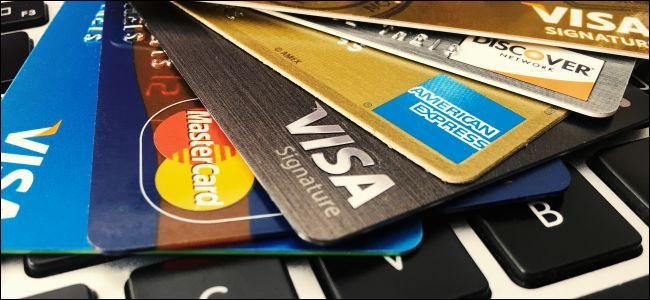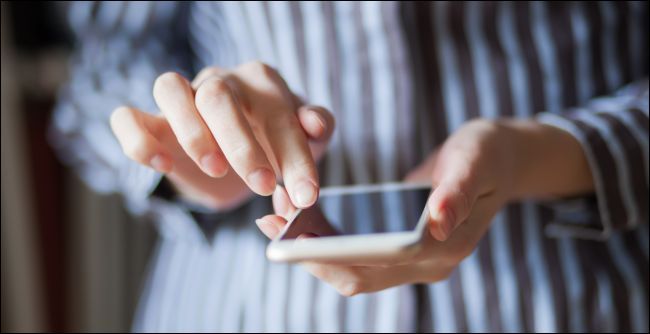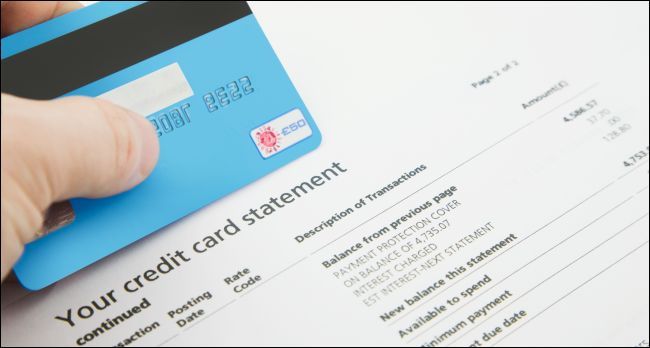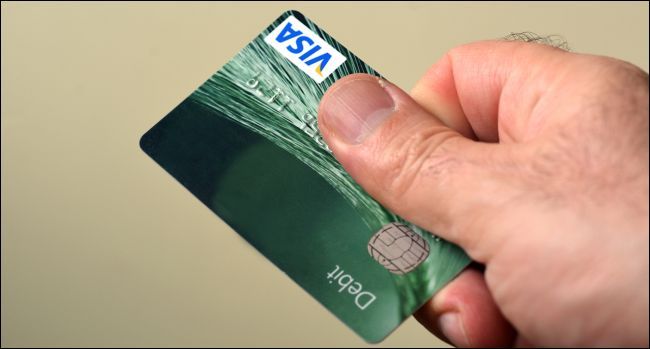Quick Links
A chargeback lets you dispute a credit card transaction and reverse it, getting your money back. For example, if you paid a subscription fee to MoviePass and the company just won't let you cancel your subscription, you can do a chargeback.
The chargeback process is handled entirely through your bank or credit card issuer. The issuer will contact the business and sort things out, and you should almost certainly win if you have a valid reason for the chargeback.
If It's Fraud, Call Your Credit Card Company Immediately
First off, if the purchase was fraudulent---for example, if someone has acquired your credit card details and is using them to make purchases---you should contact your credit card company immediately and let them know. The company will cancel your current credit card, send you a new card with a new number, and cancel the transactions you didn't make.
When You Should Initiate a Chargeback
Here are the situations where you're allowed to initiate a chargeback:
- You didn't authorize the transaction: This generally occurs when someone steals your credit card information. Contact your bank immediately.
- You didn't receive services or merchandise you paid for: Chargebacks can save you if you order something online and the merchant never ships it but refuses to refund you.
- You received defective or not-as-described merchandise: If you buy something online and the item you received was damaged during shipping, isn't as described, is counterfeit, or is generally just poor quality, you can initiate a chargeback. This also applies if the business refuses to accept your return of the product, or if you paid for a service and that service was not performed as promised.
- You were charged a recurring fee after canceling: Many services (like MoviePass) are ongoing subscription services that charge you a monthly fee. If you cancel the service, but the business refuses to honor the cancellation and keeps charging you (also like MoviePass), you can initiate a chargeback to stop them.
- You were charged twice for the same thing: If you see duplicate transactions on your card and the merchant only should have charged you once, you can initiate a chargeback to get rid of them.
- You were charged the wrong amount of money: If you see a charge that doesn't match what you agreed to pay, you can fix the problem through a chargeback.
- You were charged in the wrong currency: If you were charged in a foreign currency without being notified of that fact, you could initiate a chargeback. This can help you avoid surprise foreign transaction and currency conversion fees.
- You didn't receive credit for a return: If you return an item and the merchant doesn't credit your card or reverse the transaction within a reasonable amount of time, you can initiate a chargeback to get your money.
You often have up to 120 days to initiate a chargeback, but the time limits can vary a bit depending on the type of chargeback. Don't wait too long to start a dispute.
Contact the Merchant Before Starting a Chargeback
Before initiating a chargeback, you should contact the merchant first and give them a chance to correct the problem. For example, if you order something online and the package gets lost in the mail, or the product arrives, and it's been damaged in transit, you should contact the merchant's customer service and give them a chance to make things right. Perhaps they will refund your purchase or mail you a new product. Whatever problem you're dealing with---whether you want to reverse a duplicate charge or return a product that isn't as advertised---try contacting the merchant.
Merchants want to work with you. It's cheaper for them just to refund you. The merchant will have to pay a sizable fee---perhaps $20 to $50---if you win a chargeback dispute. It's in the business's interest to fix your problem before your credit card company gets involved.
But, if the merchant refuses to work with you---perhaps it sent a counterfeit product and is refusing to refund you, or maybe it isn't providing a service you paid for and customer service isn't responding---it's time for a chargeback. This is also true if it's a shady business that provides no customer service contact details.
Warning: Chargebacks Can Get Your Accounts Banned
Before you continue, note that the merchant can choose to close your account and stop doing business with you after you file a chargeback. For example, if you purchase a game on Steam or take a ride in an Uber and then initiate a chargeback to get your money back, Steam or Uber may ban your account. You won't be able to play your purchased Steam games or call an Uber anymore. Sony, in particular, is infamous for banning gamers who chargeback PlayStation Network purchases.
This is one reason why it's better to deal with the business's customer service than drag the credit card company into the dispute. Businesses do this to fight fraudulent chargeback requests.
Bear in mind that your bank can close your credit card account if it suspects you're abusing chargebacks for fraudulent reasons, too.
How a Chargeback Works
To initiate a chargeback, you contact your credit card issuer and file a dispute. You'll point out the transaction you're disputing and provide the reason you're challenging it.
This dispute information is sent to the merchant's card processor, and then it's forwarded to the merchant you're dealing with. The merchant can choose to pay out and refund the transaction or fight your chargeback. If the merchant wants to fight, it will have to send evidence that the transaction is legitimate. The merchant has a limited window of time to respond---30 days with Visa cards, for example---and it will lose the dispute if it doesn't respond.
For example, if you stay at a hotel and then initiate a chargeback saying you were never at that hotel, the hotel might send the copy they made of your ID and the document you signed at check-in to prove that you did stay there. However, if you have a good, valid reason for the chargeback and you're not lying, you should win your dispute. This is especially true if you've tried working with the merchant and they refuse to respond or help you.
The credit card company may choose to refund your money while the chargeback process is still underway. That's up to the credit card company.
The nitty-gritty details about these processes are available online. For example, here's Visa's chargeback guide for merchants. It describes the various chargeback reasons, procedures, and evidence Visa will request from the merchant.
How to Start a Chargeback
The exact process for starting a chargeback depends on your credit card company. When in doubt, you can call the number on the back of your credit card and tell your bank's customer service that you want to perform a chargeback or dispute a charge. They will walk you through the process.
Depending on your bank, you may be able to initiate a chargeback entirely online. These links will get you started with either American Express, Bank of America, Capital One, Chase, Citibank, and Discover. There may even be a "dispute" button next to each purchase on your credit card company's website---take a look.
When filing a chargeback, provide as much detail as possible. If you never received a product say so. If it was damaged or counterfeit, explain. Tell the credit card company whether you've tried contacting the business's customer service and explain why they weren't helpful enough. For example, if you contacted the business's customer service people three weeks ago and they haven't responded to you or blew you off, that's a good thing to disclose.
What About Debit Cards?
You have more consumer protections when you use a credit card for purchases. In the US, you have rights to dispute transactions under the Truth in Lending Act and Fair Credit Billing Act---but only when using a credit card. For example, under the Fair Credit Billing Act, you have up to sixty days to dispute a transaction after the statement is mailed to you. Credit card companies may give you more time, but that's the minimum required by law.
You can still file a chargeback dispute through your bank if you used a debit card. If your debit card ran as "credit"---in other words, if you didn't enter your PIN while making the purchase---your bank has to follow the same Visa or Mastercard rules for handling a dispute. If it ran as debit---in other words, if you entered the PIN when making a purchase---the process likely wouldn't be as easy for you.
Contact your bank to dispute a debit card transaction. This feature may not be readily available online, but the bank's customer service can help you with it. Some banks may put the money back in your account immediately and take it back if you lose the dispute, while others will hold onto it until you win a dispute.
As usual, you should try to resolve your problem, through the business first. It's easier for everyone involved if the business can refund you or otherwise fix your problem. But, if a business like MoviePass isn't behaving ethically toward you, you can hold it to account through chargebacks.
Image Credit: SeaRick1/Shutterstock.com, Champion Studio/Shutterstock.com, Jason Cox/Shutterstock.com, ChameleonsEye/Shutterstock.com.




